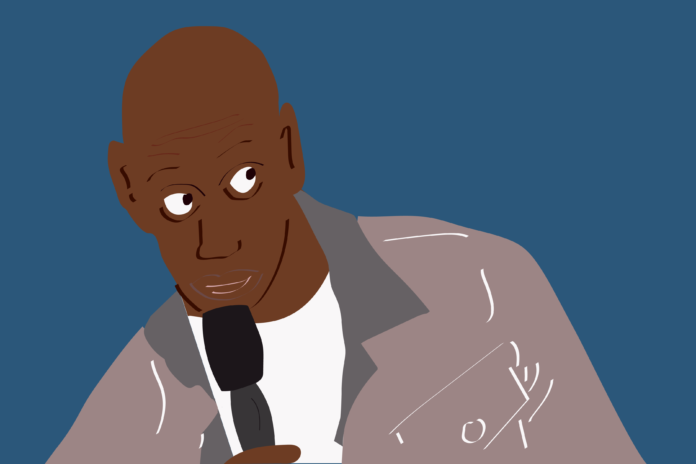Social media has transformed comedy by elevating it
What makes you laugh the most? Is it your friends, family or favorite comedian? Probably not. For most of us, our laughs are now ignited by the stuff inside the little boxes we scroll through everyday on our social media feeds: Tiktok videos, Twitter zingers and the like. Much of social media is designed around the interactions that comedy provides.
All of my favorite comedians are all on social media. They make me laugh more in a week than in a Dave Chapelle special that I only get to see once every few years. Once you find your people on these platforms, they become better mediums. Narrowing down your sense of humor and aligning it with your cultural interests would have been next to impossible before these platforms — certain voices just weren’t heard before. But now, Mike Drucker gives me all of the video game jokes I need, Jon Lovett supplies all the political wit and Jason Concepcion deals all the NBA spice.
The immediacy of social media is what makes it so great. Current events and television shows garner the wittiest reactions in real time that can be shared within seconds. The accessibility of social media overcomes the physical and economic hurdles of seeing a live comedy show. Individual tickets for Chapelle’s last two shows were no less than $190. And most comedy venues are not built with disabilities in mind — the act can be hard to see even for non-disabled individuals.
Social media is now the crux of countless comedians’ careers. It is now the most important tool for rising comics to elevate their comedy. Just look at your favorite YouTubers: Joe Rogan owes much of his present success to the platform he built and the community he’s grown on social media. Social media gives Rogan the kind of exposure and opportunity that was unheard of before. The growing ties between the necessity of social media and comedy is emblematic of the growing role social media plays as a tool in any profession.
A vital aspect of comedy is the feedback that comedians get from interacting with a live, vulnerable crowd, which is absolutely missing on social media platforms where comments are often filled with excessive hate. Instead, social media offers interactive feedback in the form of likes, retweets, shares, mentions and views. Something that is quantifiable, yet not qualitative at all.
This doesn’t mean that comedy as a whole is pulling its punches. Each new Chapelle special (and many other Netflix specials) addresses progressive events in our culture, but these are rarely ongoing. Social media, on the other hand, currates topical comedy for you immediately. It takes the effort out of giving you a laugh (or a muffled chuckle). You don’t have to witness the stand-up struggle if you don’t want to, and you don’t have to suffer through a three drink minimum either or un-godly admission prices.
Social media doesn’t have to replace traditional comedy — it can elevate it. Hasan Minhaj’s Netflix special “Homecoming King” –– filmed at the one and only Mondavi Center — intertwines social media with massive screens and tells a modern story that requires social media to move forward.
Chapelle, the greatest comic of our time, is hardly on social media at all. His comedy exists in a realm of context that isn’t possible on social media. Take most of his punchlines out of context and people would be calling for his head (some still are). Yet Chapelle is so good that he straddles the line between the new comedy world and the old. He commands your attention on your screens and when he comes to town because he has gravity. But he’s the only person big enough to do that.
Some claim that Chapelle is a comedy bygone who hasn’t progressed with the rest of us. That couldn’t be further from the truth. Comedy is about pushing limits and crossing lines. You should hate that you laugh at some of the jokes comics say, and that’s exactly what social media boils comedy down to. The overwhelming majority of jokes, memes and videos online are not funny at all. But the best stuff surfaces to the top with the help of interactive feedback through algorithms. Once you find comics that fit your sense of humor it just works. And you can go support those comics in real life if they ever come your way — or just support them online like a normal person.
Written by: Calvin Coffee — cscoffee@ucdavis.edu
Disclaimer: The views and opinions expressed by individual columnists belong to the columnists alone and do not necessarily indicate the views and opinions held by The California Aggie




